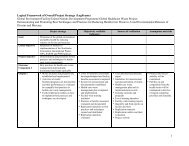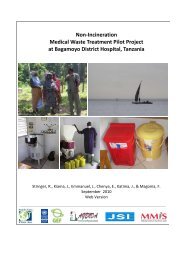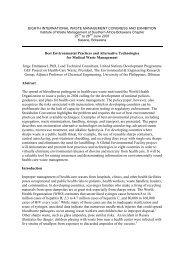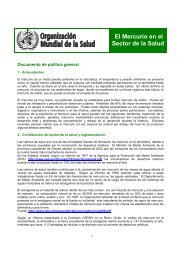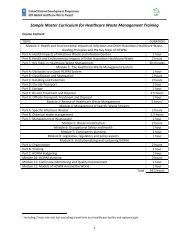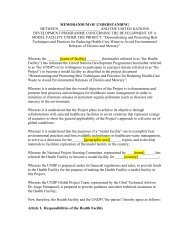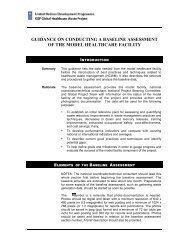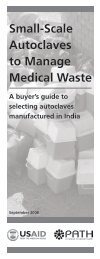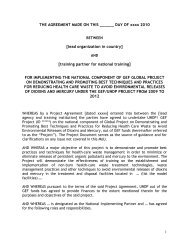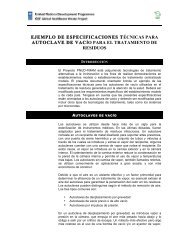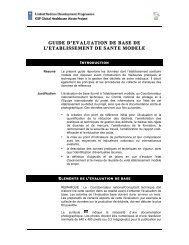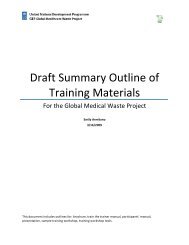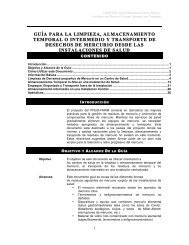Latvia
Latvia
Latvia
You also want an ePaper? Increase the reach of your titles
YUMPU automatically turns print PDFs into web optimized ePapers that Google loves.
Health systems in transition<br />
<strong>Latvia</strong><br />
Table 6.6<br />
Number of enterprises involved in pharmaceuticals manufacture and<br />
distribution, 2000–2006<br />
2000 2001 2002 2003 2004 2005 2006<br />
Pharmacies 820 908 884 876 882 861 858<br />
of which hospital 31 40 40 43 44 42 42<br />
pharmacies or<br />
pharmacies of health<br />
service institutions<br />
Wholesalers 59 50 42 38 37 37 36<br />
Manufacturers of 16 15 14 13 13 14 14<br />
pharmaceuticals (<strong>Latvia</strong>n)<br />
Source: Statistics of the State Agency of Medicines on the Operation of Pharmaceutical<br />
Enterprises, information provided to the authors [unpublished data].<br />
Amendments to the “Law on Pharmaceutical Activities” (of 1998) enacted<br />
in June 2001 prescribe new norms in the ownership of pharmacies. Only<br />
a pharmacist or local government in its administrative territory (with the<br />
permission of the Minister of Health) has the right to open and own a community<br />
pharmacy. A pharmacy may open no more than two branches outside a city<br />
where there are no other pharmacies or pharmacy branches within a radius of<br />
5 km.<br />
Wholesalers are private enterprises, with a growing <strong>Latvia</strong>n share of the<br />
total wholesale market, although a significant part of the <strong>Latvia</strong>n market is<br />
accounted for by foreign firms. In 2005 there were 36 licensed wholesalers<br />
of pharmaceutical products (for human consumption). The number of <strong>Latvia</strong>n<br />
wholesalers has decreased since 2000, as mentioned earlier. The largest is Recipe<br />
Plus, controlling 30.2% of the <strong>Latvia</strong>n wholesale market.<br />
Hospitals purchase medicines from wholesalers or pharmacies; if a purchase<br />
for a large amount of pharmaceuticals is required, it is put out to tender.<br />
Sometimes groups of hospitals issue joint tenders to secure lower prices.<br />
Pharmaceutical care is provided only by specialists with a pharmaceutical<br />
background. In 2005, 3098 such specialists were working, of whom 1485<br />
were pharmacists and the rest were pharmacists’ assistants. A total of 91%<br />
of all specialists work in pharmacies, including 1296 pharmacists and 1537<br />
pharmacists’ assistants (HSMTSA database 2007 [unpublished data]).<br />
In 2005, 17.9% of pharmacies (154) prepared pharmaceutical products<br />
according to individual prescriptions issued by physicians. As it is not<br />
economically profitable to prepare such products in pharmacies, the scale of<br />
this service has fallen and in 2005 extemporal preparations amounted only to<br />
0.51 % of the total turnover of pharmacies.<br />
Pharmacies that provide 24-hour pharmaceutical care constitute 3.7% of<br />
the total number of pharmacies.<br />
195



